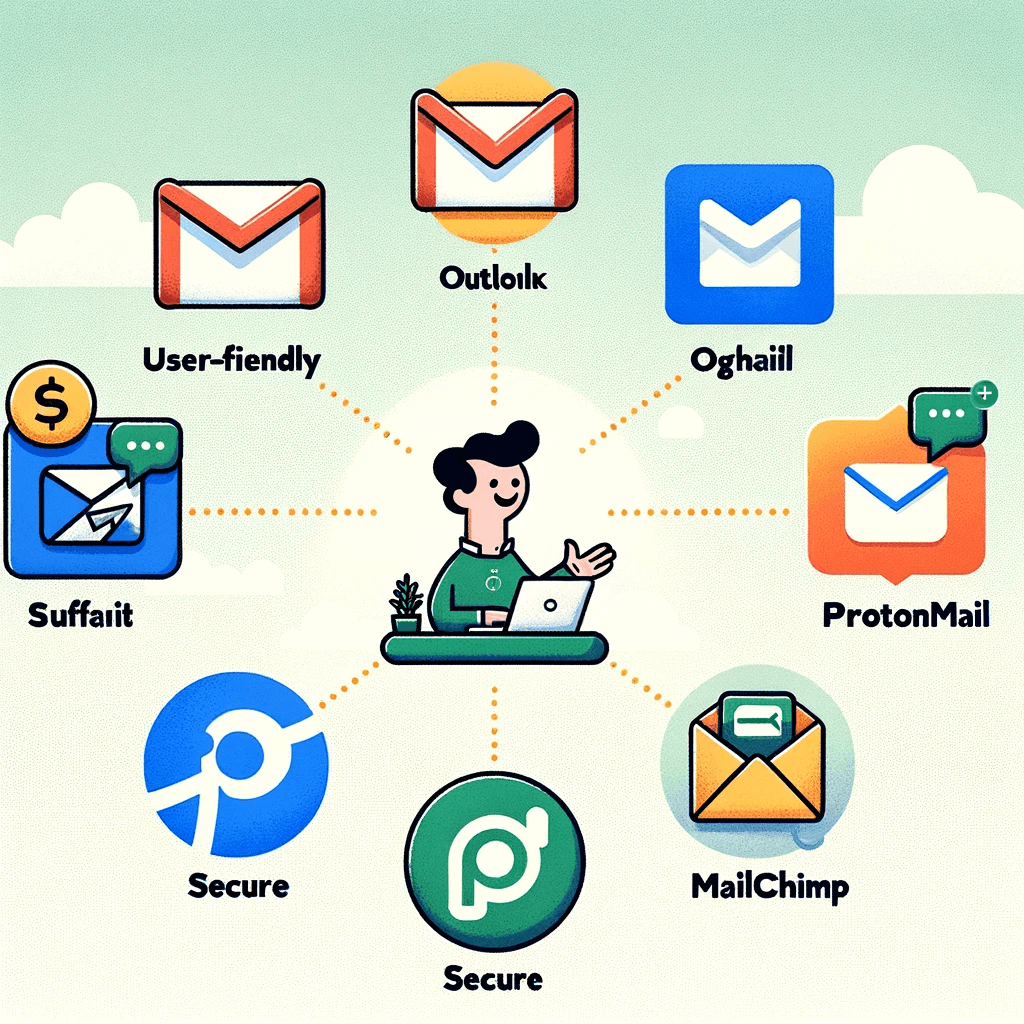January 4, 2024

Hey there, coaching professionals! In the digital era, choosing the right email platform can be crucial for your coaching business. Whether you’re starting out or looking to upgrade, it’s important to weigh the options. Let’s dive into some of the best email platforms, comparing their free and paid versions, and uncovering the pros and cons of each.
1. Gmail
Free Version: It’s user-friendly and integrates seamlessly with other Google services. You get 15 GB of storage, which is usually enough for starters.
Paid Version (Google Workspace): Offers more storage, custom email domains, and advanced security features. Great for scaling up your operations.
Pros: User-friendly interface, robust security, and great integration with Google tools. Cons: Limited customization options in the free version; paid version can be pricey for a full team.
2. Outlook
Free Version: Part of Microsoft’s suite, it offers 15 GB of mailbox storage and integrates well with other Office tools.
Paid Version (Microsoft 365): More storage, advanced security features, and custom domain support. Ideal for those already using Microsoft’s ecosystem.
Pros: Excellent integration with Microsoft Office, strong security. Cons: The user interface can be less intuitive than Gmail; some advanced features require the paid version.
3. Zoho Mail
Free Version: Offers a clean, ad-free experience with 5 GB of storage per user. Great for small teams.
Paid Version: More storage, features like e-discovery, and custom domain emails. A good middle-ground option.
Pros: Ad-free, even in the free version; offers a range of integration options. Cons: Less storage in the free version; can get expensive as you add more features.
4. ProtonMail
Free Version: Known for its end-to-end encryption and security focus. Offers 500 MB of storage.
Paid Version: More storage, additional email addresses, and custom domains.
Pros: Top-notch security and privacy. Cons: Limited storage in the free version; higher cost for full privacy features.
5. Mailchimp
While primarily an email marketing tool, it’s great for coaches who want to combine regular emailing with marketing efforts.
Free Version: Basic email marketing features and a limited number of emails per month.
Paid Version: Advanced marketing features, analytics, and higher sending limits.
Pros: Excellent for email marketing; intuitive design. Cons: More focused on marketing than regular email communication; limited features in the free version.
Conclusion
Each email platform has its strengths and weaknesses, and the best choice depends on your specific needs. Are you looking for simplicity, storage, security, or marketing capabilities? Consider these factors, and choose the one that aligns best with your coaching business’s goals and workflow. Happy emailing!
Input your search keywords and press Enter.